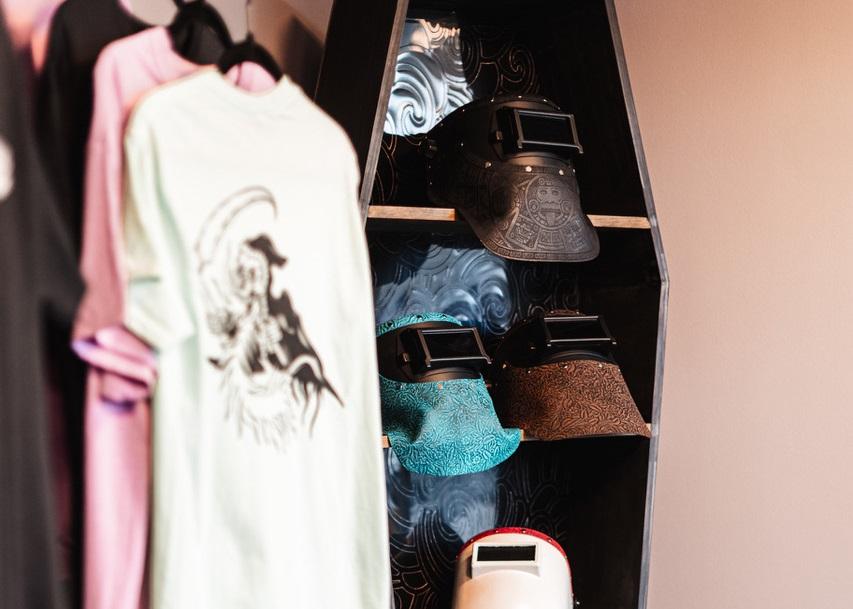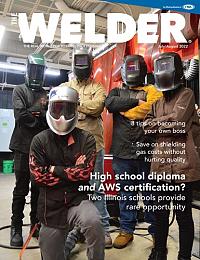Content Manager
- FMA
- The Fabricator
- FABTECH
- Canadian Metalworking
Categories
- Additive Manufacturing
- Aluminum Welding
- Arc Welding
- Assembly and Joining
- Automation and Robotics
- Bending and Forming
- Consumables
- Cutting and Weld Prep
- Electric Vehicles
- En Español
- Finishing
- Hydroforming
- Laser Cutting
- Laser Welding
- Machining
- Manufacturing Software
- Materials Handling
- Metals/Materials
- Oxyfuel Cutting
- Plasma Cutting
- Power Tools
- Punching and Other Holemaking
- Roll Forming
- Safety
- Sawing
- Shearing
- Shop Management
- Testing and Measuring
- Tube and Pipe Fabrication
- Tube and Pipe Production
- Waterjet Cutting
Industry Directory
Webcasts
Podcasts
FAB 40
Advertise
Subscribe
Account Login
Search
8 tips for starting a welding business
Welding business owners share how to make it happen
- By Trish Fliss
- August 17, 2022
- Article
- Shop Management
Editor’s Note: The following is based on “How to Start Your Own Welding Business,” a panel discussion hosted by the American Welding Society at FABTECH, Sept. 13-16, 2021, Chicago.
Metal artist/business owner Rae Ripple, welder/business owner Rush Kane, and business owner Nick Bezates have been through life’s highs and lows, from losing their jobs to becoming successful business owners to even starring in Netflix shows.
Stephanie Hoffman, welder, American Welding Society (AWS) representative, and instructor and owner of UnderGround Metal Works, spoke with the three to provide aspiring business owners—many of them young couples–expert business startup advice on addressing one topic: How does one start their own welding business?
Your father or mother might say, “A good account is worth its weight in gold,” “What are the buying habits of the target demographic?” or “Keep up to date with insurance.” Those statements and suggestions are important, but here are eight not-so-stereotypical tips coming directly from welders who followed the dream of becoming their own boss.
1. Establish and Invest in Your Brand Identity
Determining your brand identity is a critical first step. How do you want your brand to look? What do you want people to feel from your product or service?
Hoffman places a lot of weight on this tip due to the nature of her business endeavors. Not only is she the owner of a custom fabrication business, she also started a custom fabrication and welding school recently.
“I wanted to position it to be reflective of me,” explained Hoffman, whose school is based out of Forked River, N.J. “I wanted to offer an experience of a custom, quality welding education with my vibe—something they could build upon at their own rate. You don’t need to spend $30,000 for a good welding education.”
Hoffman’s unique educational environment includes classes with no more than five people, five movable welding stations, and a décor that matches her personality, right down to the full sleeve of tattoos.
“I was investing in what I wanted my brand to be, and that was an investment in why people were going to come to my school,” Hoffman said.
Kane, who co-owns Salt Lake City-based Kane Industries with wife Shan, echoes this sentiment.
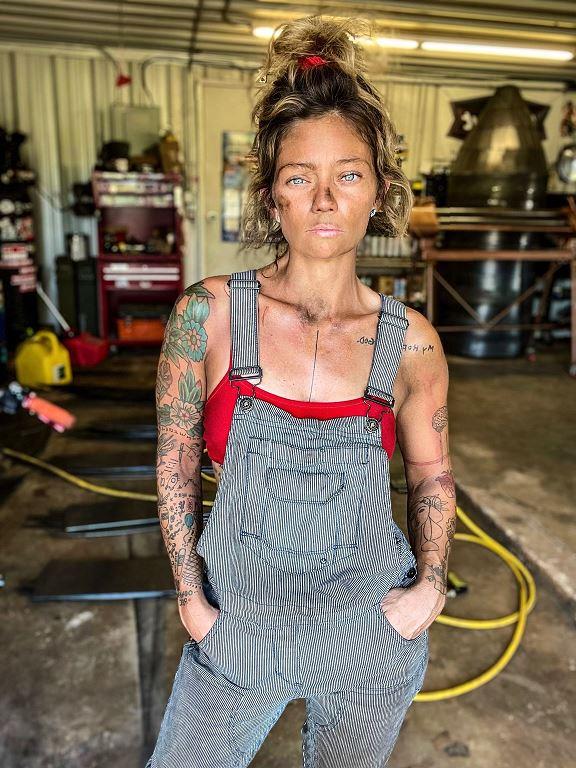
Rae Ripple, owner of Rae Ripple LLC in Big Springs, Texas, is a renowned metal artist and was featured on Netflix’s “Metal Shop Masters.”
“I want my products to be known as premium, top-tier products. With everything I put out, I want my products to project an image that is as cool as they feel. I want you to feel as good on the outside as you do on the inside.”
Kane personally designs his welding PPE products in-house, beginning with his pull-on welding sleeves.
“Our first product was the Arc Defense sleeves, a pull-on, UV-blocking sleeve. It comes in whatever size you need, just like if you were to buy a jacket at the store,” Kane said. “They’re made out of a really cool fabric that I've spent a lot of time researching, finding the perfect fabric blend and weave structure that is the most protective, longest lasting, and physically comfortable to wear.”
2. Prepare for Hard Times
While this may seem simple, most aspiring business owners aren’t forecasting for challenging circumstances—everyday circumstances often are forcing them to prepare for tomorrow. This was the case for Ripple, who was forced to pivot when the pandemic hit.
“There’s no way anybody’s going to want to buy art when nobody’s working,” said Ripple, who owns Rae Ripple LLC in Big Springs, Texas.
“The world stopped. Everything stopped. So, I found a way to reinvent myself. I had just gotten a CNC, so I started making business signs to make money.”
The pandemic created a challenging scenario for most, but Ripple was able to move forward with her ingenuity and business sense.
“Even if you’re riding a high, you will come down, and you need to be prepared for that,” said Ripple. “Don’t put yourself in a spot where it will cripple you.”
Hard times also have made materials pricing more difficult, requiring more planning for Hoffman.
“You have to look at your market and do research before you put a price on something,” Hoffman explained. “There are massive fluctuations right now, and you have to keep that in mind when pricing a job out. You may ask for a deposit, but by the time you get it materials have gone up 20%.”

Welder and AWS representative Stephanie Hoffman is an instructor and owner of UnderGround Metal Works, and co-hosted Netflix’s “Metal Shop Masters.”
“As a business owner, you can’t think short term,” she added. “You can’t just think about your paycheck this week, you have to think about your bank account in five years.”
Kane learned to expect the unexpected when the pandemic disrupted the supply chain.
“I had shipping delays which ended up creating a two-month standby where I didn’t have a product,” Kane said. “You have to explore alternatives, such as modes of transport. There are options, and they may come at different costs.
“I’m a manufacturer, so it’s important for me to establish good relationships with the suppliers and manufacturers that I do business with,” he added. “It’s a reciprocal transaction.”
3. Don’t Give Up
The power of determination and mind over matter cannot be underestimated, particularly when it comes to supporting yourself.
“The hardest part is deciding to start your business, then doing it wholeheartedly and unfiltered,” said Kane. “The worst-case scenarios in your head are just that: imaginary. None of that is real.”
Kane was furloughed from his former position due to COVID-19. However, the furlough became a blessing in disguise as it paved the way for his 15-year dream to start his own company.
“It was a scary, high-risk situation, but you have to face the risk and your fears,” said Kane. “We didn’t know it at the time, but it was one of the best things that ever happened to us.”
Hoffman said to never forget the “endgame,” but she knows the value of being passionate about her work, as well as understanding the value of thankless work.
“Take those projects that you don’t really want to do,” Hoffman said. “It’s an investment in yourself that leads to the projects you love and more high-paying jobs. Start small. We all want to get there, but you must fight for it. I never, ever turned down work.”
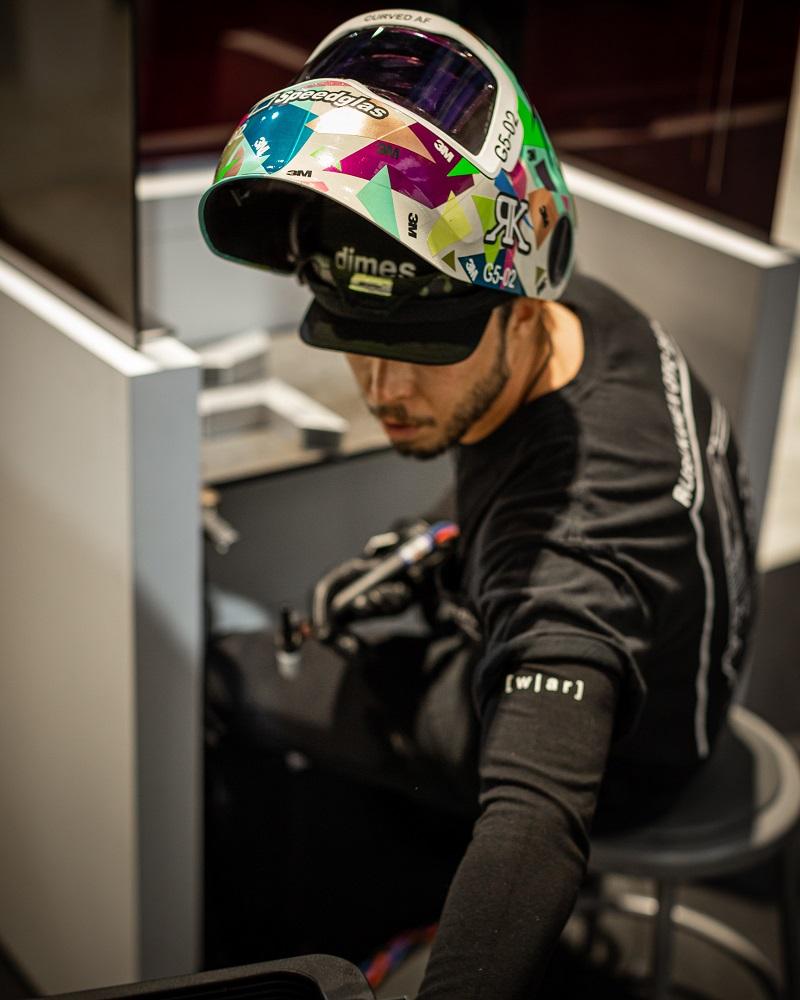
Welder Rush Kane co-owns Salt Lake City-based Kane Industries with his wife. Kane personally designs his welding PPE products in-house, beginning with his pull-on welding sleeves.
Ripple doesn’t see mistakes as failures—rather, they’re “redirections.”
“Every time I thought I was failing, I was actually being redirected into something else or to a place I was supposed to be,” said Ripple, who, along with Hoffman, appeared on Netflix’s “Metal Shop Masters.” “It’s hard, but it’s actually another opportunity.”
Ripple has a very pragmatic approach to never giving up. Her art is her world and making a living through art meant developing an effective and reasonable strategy. Like Hoffman, Ripple’s endgame took time.
“Use the weekends to build the life you want and use the week to do what you’re supposed to do,” added Ripple. “I had kids, I had bills to pay, I had work and other things during the week. I would spend the weekends building art and learning my craft and making mistakes that redirected me.”
4. Get Certified
For Bezates, losing his project manager job became a motivating factor in his unwavering determination to succeed.
Bezates and his father took some time to get their thoughts together and then started bidding on some small jobs. Starting small, having credentials, and working hard made all the difference, he said.
Bezate’s certifications include AWS 6GR D1.1, D1.4, and D1.5 (carbon and 588 weathering steel); American Society of Mechanical Engineers IX carbon and stainless, aluminum and stainless mobile capabilities; and crane operator certification from the National Commission for the Certification of Crane Operators.
“Being AWS-certified helps you get a foot in the door and get started,” said Bezates, owner of company Bezates Construction LLC, a Beaver Creek, Ore.-based welding, fabricating, and excavating services company. “You’re going to find work. Be willing to make some repairs on heavy equipment or farm equipment and do small miscellaneous things for a while. I started getting calls from larger contractors I had worked with, and things started to snowball.”
5. Use Every Available Tool
While financing equipment might be a necessity, using tools you already have at your disposal often is overlooked. When Ripple was learning her craft, she would use equipment from a local shop after hours.
“I would cut things for him or do things for him in the shop, and he would let me use his equipment after work,” she explained. “He had a scrap pile, so I would build things from there and sell them on social media. Eventually, I could buy a plasma cutter.”
Social media is a tool to which Ripple credits much of her path to metal art.
“Back in college I changed my major and tried to get into welding, but women weren’t really in the industry, especially in West Texas in the oilfields,” said Ripple. “I decided I would teach myself, and I watched probably every YouTube video ever created on welding and fabricating.”
6. Get Your Name Out There
Social media is very much an educational and publicity tool as it is a part of establishing your brand, your identity, and your following. Most small business owners use social media, and all of them likely will credit a percentage of their success to the platforms.
Bezates showcases his work and equipment on Instagram, and keeps his LinkedIn profile up to date.
“You have to get your name out there,” he said. “If contractors don’t know what you’re doing, they’re not going to call you. Post photos of your projects. Pass out your business cards, make cold calls, revisit contacts in the industry. Reach out and let them know how you can help them with what you’re doing.”
“People are coining it the most Instagrammable welding school ever,” Hoffman said of her school.
Kane Industries, meanwhile, benefits from years of diligent social media self-promotion.
“I’ve spent over 10 years building my social media platform and creating my personal portfolio of my work—and that created a following,” said Kane. “No one knows my following like I do. Nobody’s going to do it better than me.”
“Social media may be completely different in five years, but it has changed my entire life,” added Ripple. “Even if I’m doing things that people think are stupid, I’m creating art and people are seeing it. They see good things and they see me struggle, but they see me and my art, and they remember it.”
7. Talk to and Watch Others
Each panelist agreed that talking to and learning from other industry business owners is a great help, especially while you are still working for someone else.
“You might be working for a grumpy welder in a shop somewhere,” explained Bezates. “Keep your mouth shut and watch him work because he has figured it out. He’s been there and made the mistakes, so watch him and learn.”
Bezates also learned watching his father work.
“My dad has some welding experience but isn’t a welder by trade,” he said. “He has construction experience and an engineering mind. I learned problem-solving—like how to take on a job, break it down, and make it work—from my dad.
“Talking with other business owners and small guys like me and seeing how they approach problems and take jobs on gives me perspective. You always want to hear how someone else solves a problem that you also have. So many small business guys are in the same boat.”
Kane learned early on the importance of being a part of the “community in this industry,” and continues to value his connections.
“I was building relationships for 15 years and establishing myself in the industry,” noted Kane. “Taking great ideas from others brings us together to create something truly great.”
Hoffman is also a U.S. Army veteran; she used her experience and connections to gather startup intel as well.
“With my business and working for the American Welding Society, I reached out to people in the industry for advice,” Hoffman said. “They want to help because many have been there. They want to understand the experience you’re creating for others and offer ways for you to be different.”
8. Be Honest
Honesty can be hard when you are new and trying to overcome challenges, but it remains the best route.
“I started a business at one of the worst times,” Kane said. “There were shipping delays and my products were sold out. I don’t like pre-orders or pre-paying. I wanted to be transparent, so I made sure to list availability on my site. If customers bought something and shipping ended up costing me twice as much, I kept products at the expected price. I want consistent customers, and they expect a consistent price.”
Kane notes that, being a manufacturer, money is a large part of the relationship.
“I don’t want to try to cut [manufacturers] out by trying to get the lowest price. If that’s my objective, then they will cut costs with labor. We don’t support that,” he added.
For Bezates, his experience in construction is opposite Kane’s.
“You have to know your value and worth, and be honest about it,” said Bezates. “If I come in and complete a job, but you want extra work done, this will cost extra. Line item all the extra expenses and be realistic about the deadline. You must be able to say no, if necessary, especially when you’re the little guy on a job.
“Being open and honest is the best solution.”
For Ripple, her response is simple: “I just keep being myself.”
The Long and Short of It
Business ownership comes with risks, but also rewards. Hoffman’s school has students coming from Texas, Washington state, and California. Kane expanded his product line, developed a new welding machine with OTC DAIHEN and started Weld Labs, a continuing education business with partner Nate Bowman, known as weld scientist on Instagram.
Meanwhile, Bezates has increased business and job safety and decreased his workload stress with the purchase of a 4,000-lb., truck-mounted crane and two spider cranes. And Ripple entered public speaking and recently wrote a children’s book.
“I want to be proud of the person I am today,” said Ripple. “I’m going to keep moving forward and keep creating. I’m never going to stop.”
About the Author
Trish Fliss
8669 NW 36 St., #130
Miami, FL
About the Publication
Related Companies
subscribe now
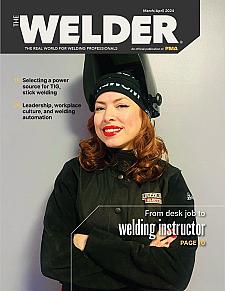
The Welder, formerly known as Practical Welding Today, is a showcase of the real people who make the products we use and work with every day. This magazine has served the welding community in North America well for more than 20 years.
start your free subscription- Stay connected from anywhere

Easily access valuable industry resources now with full access to the digital edition of The Fabricator.

Easily access valuable industry resources now with full access to the digital edition of The Welder.

Easily access valuable industry resources now with full access to the digital edition of The Tube and Pipe Journal.
- Podcasting
- Podcast:
- The Fabricator Podcast
- Published:
- 04/16/2024
- Running Time:
- 63:29
In this episode of The Fabricator Podcast, Caleb Chamberlain, co-founder and CEO of OSH Cut, discusses his company’s...
- Trending Articles
Sheffield Forgemasters makes global leap in welding technology
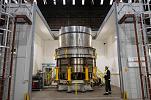
Welding student from Utah to represent the U.S. at WorldSkills 2024

Lincoln Electric announces executive appointments

Lincoln Electric acquires RedViking
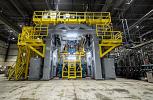
Engine-driven welding machines include integrated air compressors

- Industry Events
16th Annual Safety Conference
- April 30 - May 1, 2024
- Elgin,
Pipe and Tube Conference
- May 21 - 22, 2024
- Omaha, NE
World-Class Roll Forming Workshop
- June 5 - 6, 2024
- Louisville, KY
Advanced Laser Application Workshop
- June 25 - 27, 2024
- Novi, MI
























